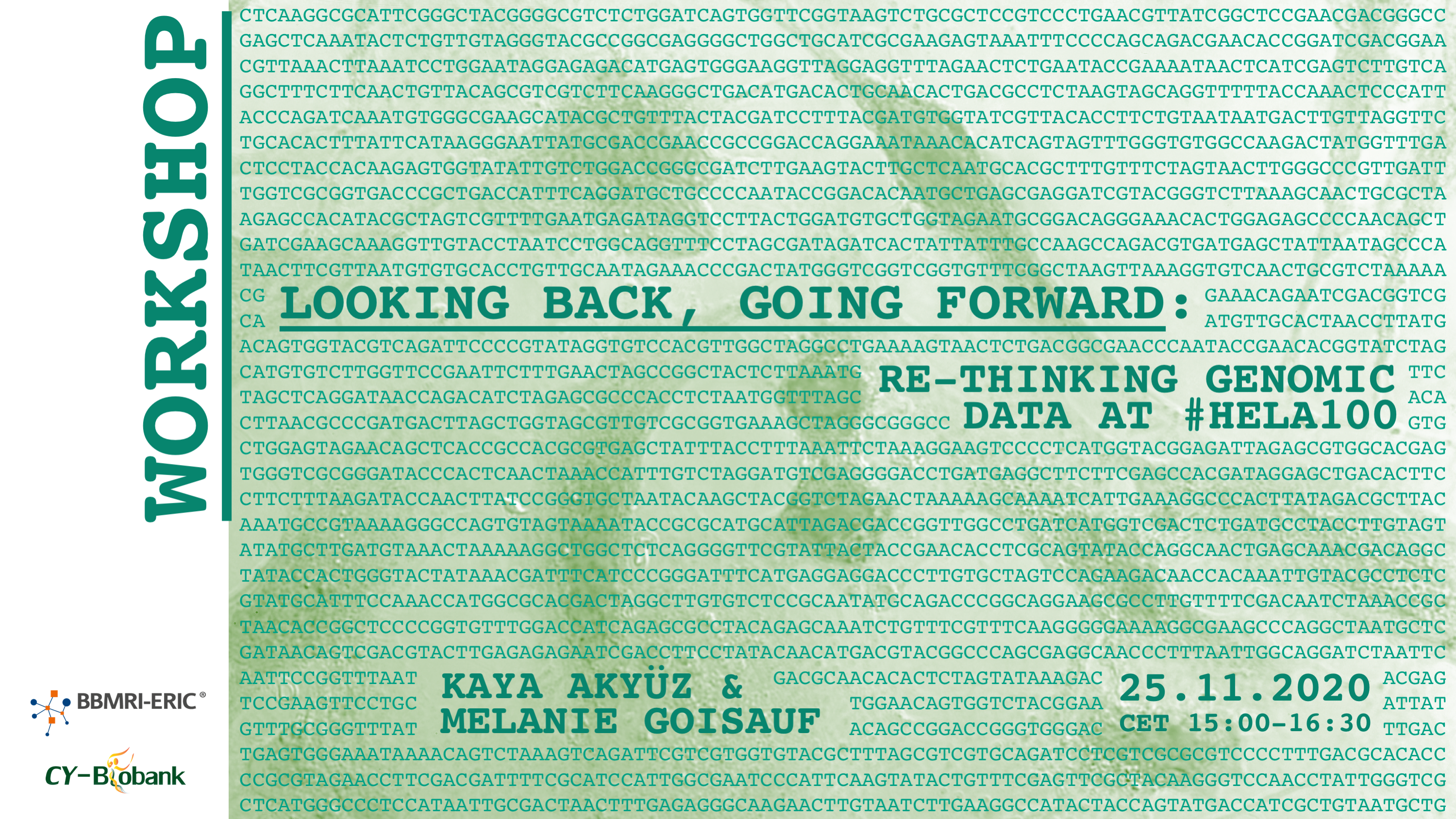I am looking for information as
Researcher

Industry

Patient

Workshop: Looking back, going forward
Henrietta Lacks and the first immortalized human cell line, HeLa, have been influential in shaping both science and technology, from the development of the polio vaccine to discovering mechanisms of cancer. Just as important are their contributions to our understanding of research ethics and patient rights, above all informed consent. This year marks the 100th anniversary of Henrietta Lacks’ birth. With the momentum of the #HeLa100, we want to go back in time to a 2013 controversy surrounding HeLa cell line to reconsider our understanding of the genomic data and the relevant data practices. While the publications of HeLa genome by different research groups in the US and Europe without consent has been at the center of the 2013 debate, this episode also highlights the peculiarities of genomic data. Following a presentation on this case of controversy, we would like to open up the discussion to a broad group of participants to think outside the box in imagining the future, by asking the following questions: How to respect the rights of family members in case of de-identified/easily de-identifiable genomic data? What kind of safeguards are/will be necessary for biobanks in a highly datafied world? How could this episode animate better informed consent practices in biobanking?
This workshop is hosted by BBMRI-ERIC. It is co-funded by CY-Biobank, a project that has received funding from the European Union’s Horizon 2020 research and innovation programme under grant agreement No 857122.
Organized by Kaya Akyüz and Melanie Goisauf.
Watch the recording here.





